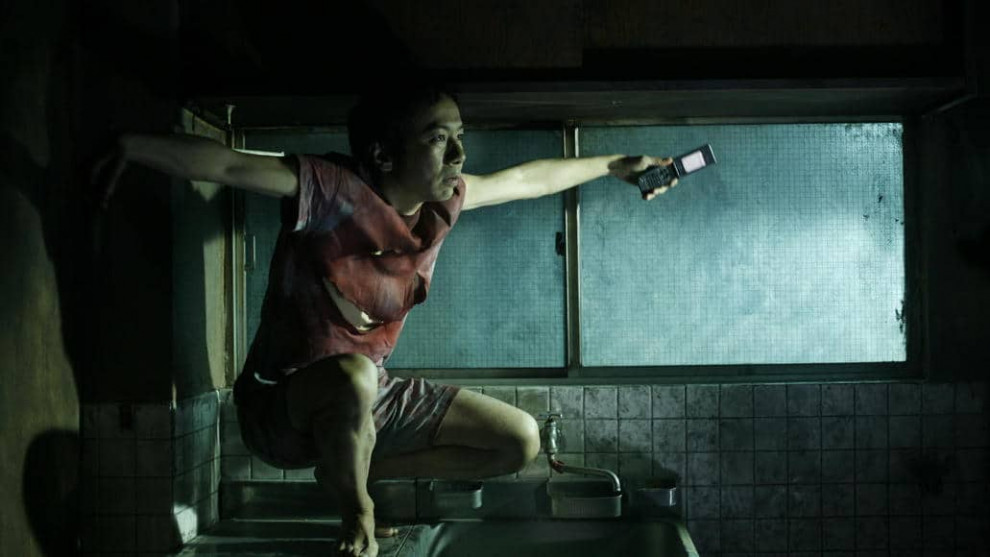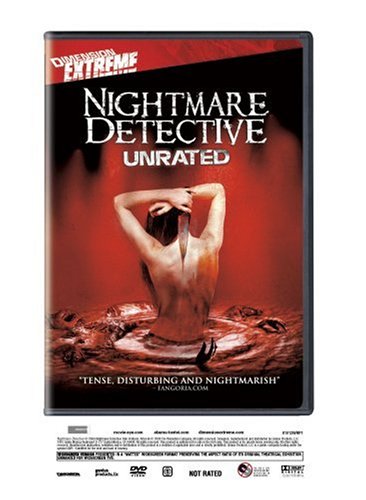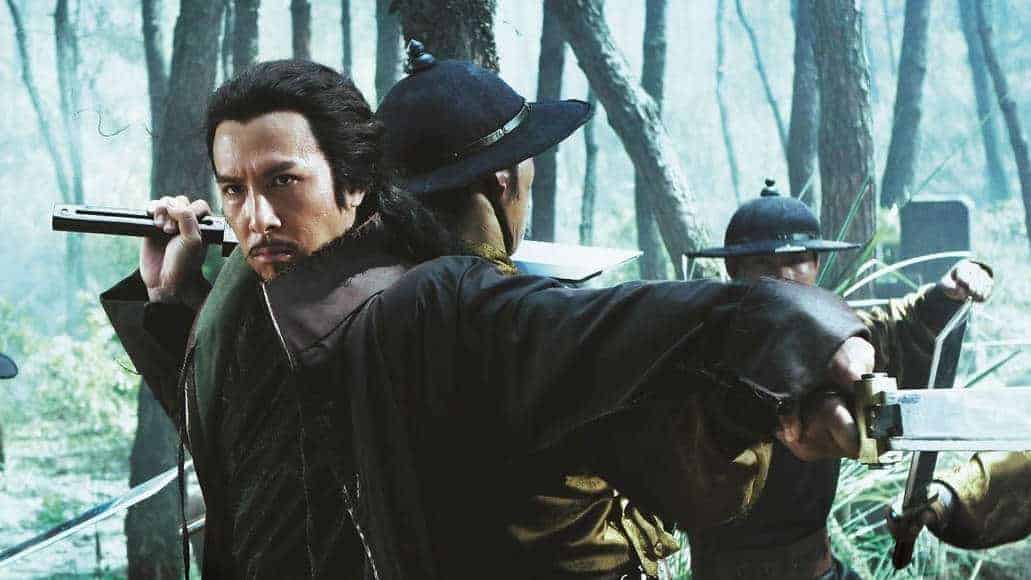After he had explored death and the afterlife in his 2004 feature “Vital”, Japanese director Shinya Tsukamoto would continue this thematic journey two years later with “Nightmare Detective” as well as its sequel in 2008. In an interview with Screen Anarchy, explains how he thought the concept of the “human body and the city, which had started with the first “Tetsuo”-film, was finished, but then he found himself with more ideas on the issue. The two films, which he had originally planned as a trilogy, may be regarded as Tsukamoto's closest approach to mainstream cinema, especially since they contain elements reminiscent of J-horror, but in the end they feel more like additions or, as the director says, afterthoughts to the themes he had explained before.
Buy This Title
In the first feature, a series of gruesome incidents has plagued the streets of Tokyo with the victims found viciously stabbed, seemingly self-inflicted, holding their cells in their hands. Even though she cannot stand the sight of blood, Lieutenant Keiko Kirishima (Hitomi), who has recently switched from her relative secure position in the National Police Academy to a district police station, becomes part of the investigation led by Detectives Ishida (Ren Osugi) and Wakayama (Masanobu Ando). Whereas Ishida insists on the events being suicides, Keiko feels there is a hidden motif in the incidents, especially since all of the victims have dialed the number “0” before they died.
Supported by Wakayama, Keiko regards the events as murders, but since the cause might be related to the supernatural, the detective urges her to contact a medium, a person who is supposedly able to enter people's dreams called Kyoichi (Ryuhei Matsuda). However, as they are unable to convince Kyoichi to help the investigation, they decide to contact the mysterious caller by themselves, against the medium's pleas not to do that. With the two detectives now facing a dangerous foe they are not able to see, the “nightmare detective” feels he has to help them.
For those familiar with the other works by Tsukamoto, you will most certainly notice the various connection to the director's previous work. Perhaps “Nightmare Detective” can be compared to “Bullet Ballet” given its overall vision of the city, the characters search for authenticity or intensity of experience as well as the idea of isolation within the modern world. However, given the additional layer of the dream, invaded by an outside force, in this case the character played by Ryuhei Mitsuda, the sense of isolation and helplessness is extended upon a person's most intimate and vulnerable state. Given the obviously traumatized state of Mitsuda's character, how he cannot shake off what he has witnessed in the dreams of other people, this notion of isolation is further emphasized, as Kyoichi is branded an outcast in society, living on the run-down outskirts of the city.

However, as the movie progresses, Tsukamoto, as director and cinematographer, blends the world of the dream and the real, seemingly favoring the former over the other. For the majority of characters in the film, the real world is a place of misery, misfortune and unhappiness, a cold and impersonal world, highlighted by the use of blue filters and the overall choice of dark, grim locations. Indeed the real trauma for most of them is the real world, it is the real nightmare which they want to escape from, but they fail to take the last, decisive step to eventually rescue themselves. This concept may be a link to the ideas of trying to experience something intense or authentic in the real world mostly designed to numb a person's feelings through its overall dullness and lack of community. At the same time, Tsukamoto again seems to showcase the core problem within a character, or indeed a society that is mostly concerned with itself, but lacks cohesion and a true sense of interest in the other person, making the concept of the suicide evidence to a narcissistic self-image.
“Nightmare Detective” is an interesting blend of horror and supernatural thriller, an extension of the themes Shinya Tsukamoto explored in previous feature. While not on the same level as “Bullet Ballet” or “Tokyo Fist”, its aesthetics and Ryuhei Matsuda's performance as the emotionally tormented Kyoichi make “Nightmare Detective” a solid viewing experience.
















